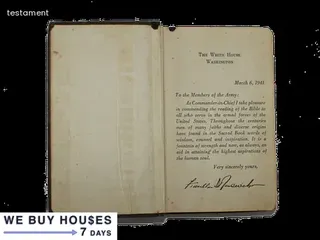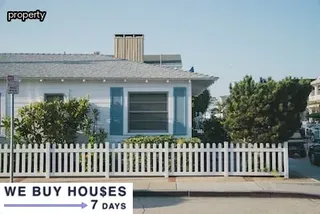Probate is a process that takes place after the death of a person to validate the will and distribute their assets according to state law. In South Carolina, probate laws are determined by the South Carolina Probate Code, which outlines the procedures for transferring a deceased person's estate to their heirs.
The code also covers areas such as taxes, debt collection, guardianship of minor children, and other matters related to the deceased's estate. It lays out guidelines for determining how much is owed in taxes and debts and establishes rules for how assets should be distributed among family members.
Additionally, it sets out requirements for filing claims against estates and provides guidance on how financial affairs should be handled during probate proceedings. A knowledgeable attorney can help guide you through this process so that your family's inheritance is properly handled in accordance with South Carolina law.

In South Carolina, when creating a will, it is important to identify an executor who will be responsible for distributing assets according to the wishes of the deceased. This individual must be over 18 years of age and mentally competent.
It is also important to name alternates in case the original executor is unwilling or unable to serve. The executor named in the will has priority but if there is no will, the court will appoint someone to act as executor depending on their relationship with the deceased.
Generally, this person must be over 21 and have no criminal record. The court may also require them to post a bond as security against any potential losses or mismanagement of funds.
Additionally, South Carolina law provides that if there are two or more co-executors named in a will they must act together in carrying out their duties unless otherwise specified. Once appointed by the court, the executor has legal authority to manage all aspects of probate including navigating financial accounts, filing tax returns and settling debts.
Estate planning in South Carolina is an essential part of real estate and probate law, as it allows individuals to make decisions about how their assets will be distributed after they pass away. In order to ensure that their wishes are followed, South Carolinians must understand the state's laws on wills, trusts, and probate.
When creating a will, South Carolinians must understand the process of appointing a personal representative and the requirements for making a valid will in the state. Additionally, they must also consider how their assets would be divided among beneficiaries if they were to pass away without leaving a will.
For example, under South Carolina law, spouses and children who are not named as beneficiaries in a will may still receive part or all of an estate if there is no valid will. Trusts can also be used to manage assets during life and to provide for the distribution of property upon death.
Furthermore, understanding South Carolina's probate laws is essential for settling an estate, which includes locating assets, paying taxes and debts of the deceased, and distributing any remaining property according to the terms of the deceased's will or trust agreement. Estate planning in South Carolina can be complex but with proper knowledge it can help ensure that one's wishes for their estate are fulfilled after death.

In South Carolina, the probate court determines who is eligible to act as an Executor of a decedent's estate. Generally, any adult who is a resident of South Carolina and has no criminal background may be eligible to serve as an Executor.
Furthermore, those who are related to the deceased, such as their spouse or children, may also be eligible to assume this role. The probate court takes several factors into consideration when determining eligibility for the Executor position.
These factors include the decedent's wishes, the size of the estate, and whether or not there are other qualified individuals willing and able to assume this role. Ultimately, it is up to the court to decide who will be responsible for administering the estate according to South Carolina law.
An executor is responsible for managing the estate of a deceased individual in South Carolina. They are tasked with identifying and gathering assets, paying bills and taxes owed by the deceased, distributing property to beneficiaries, and otherwise ensuring that the wishes of the deceased are carried out according to their last will and testament.
This includes filing necessary court paperwork and obtaining court orders when required. The executor also has the responsibility of locating potential creditors or any other parties with legal claims against the estate.
Additionally, they must keep accurate records of financial transactions related to the estate, review estate documents for accuracy, and provide regular updates on progress to all interested parties. Executors are held to a high standard in South Carolina and must exercise reasonable care in fulfilling their duties as outlined by probate laws.

When dealing with probate assets in South Carolina, it is important to be aware of the potential tax implications. When a person passes away, their estate may be subject to federal and state estate taxes.
In South Carolina, this includes both an inheritance tax and an estate tax. The inheritance tax rate is based on the relationship between the deceased and the beneficiary, while the estate tax rate is based on the size of the estate.
In addition, any income generated from probate assets may be subject to income taxes. It is essential to consult with a qualified financial advisor or accountant familiar with South Carolina probate law in order to ensure that all applicable taxes are paid properly and accurately.
In South Carolina, probate attorneys are essential to the smooth and efficient completion of a real estate transaction. A probate attorney is responsible for handling a wide variety of tasks related to the transfer of real estate ownership from one person or entity to another, such as reviewing and drafting legal documents for court proceedings, providing legal advice on all aspects of the process, and representing clients in court when necessary.
In addition, a probate attorney will be able to provide guidance on the taxation and other financial implications associated with the sale or transfer of real estate. It is essential that a probate attorney have a thorough understanding of both state and federal laws related to real estate transactions in order to ensure that all parties involved are well informed about their rights and responsibilities throughout the process.
With their expertise and knowledge, probate attorneys can play an invaluable role in helping individuals successfully complete a real estate transaction in South Carolina.

Contesting a will in South Carolina can be a complex process, and it is essential to understand the relevant laws before taking any action. In this state, a will must be contested within three years of the testator's death.
This is known as the statute of limitations. Additionally, anyone wishing to contest a will must be an interested party, such as an heir or beneficiary of the estate.
To begin the process, one should file their complaint with the probate court located in the county where either the testator lived or where their assets are located. The complaint should provide detailed evidence that invalidates the will in some way.
Common grounds for contestation include fraud, undue influence, lack of testamentary capacity, or another form of legal defect. It is also possible for interested parties to challenge specific gifts or bequests made by the deceased if they believe those assets should have been distributed differently according to state law.
Lastly, it is important to note that if all parties involved can agree on how to handle the estate outside of court proceedings, they may opt for alternative dispute resolution instead of litigation.
Challenging a will's validity in South Carolina requires attention to detail and understanding of the state's real estate and probate laws. The process begins by filing a petition for probate with the court, which must demonstrate sufficient grounds for challenging the will, such as lack of mental capacity or undue influence.
Once the petition has been filed, documents such as wills and trust agreements must be provided to the court for review. The court may also request testimony from witnesses who were present when the will was signed or can speak to any potential evidence of fraud or coercion.
Ultimately, all parties involved in the challenge have the right to be heard and should have an opportunity to present their own arguments before a decision is reached. In some cases, a jury trial may be necessary if there is disagreement between parties over ownership rights or other details related to the will.
With careful consideration of real estate and probate laws in South Carolina, it is possible to successfully challenge a will's validity in order to protect one's rights and interests.

Determining an equitable and fair outcome when it comes to disputes over estate assets in South Carolina can be a complex and time-consuming process. It is critical that individuals involved in the probate process understand the legal implications of estate assets and the applicable state laws.
In South Carolina, real estate disputes over an estate asset must be resolved through a petition to the probate court, usually initiated by an executor or administrator appointed to handle the estate. After review of all relevant documents, the probate court will then determine if any potential conflicts exist and determine how those conflicts should be resolved.
Depending on the complexity of the dispute, alternative dispute resolution services, such as mediation or arbitration, may also be helpful in resolving any issues. All parties involved should seek legal counsel when determining how best to resolve disputes related to real estate assets within an estate in South Carolina.
Inheriting a property in South Carolina can be both an exciting and overwhelming experience. It’s important to understand the tax implications associated with inheriting property in the state, especially if you are a beneficiary of a probate estate.
In South Carolina, beneficiaries are responsible for paying taxes on inherited property, including real estate. These taxes are based on the fair market value of the property and must be paid within twelve months of receiving it.
This means that if you inherit a home or other property in South Carolina, you may owe taxes on it. It is important to work with an experienced attorney and accountant to ensure that all applicable taxes are paid correctly and on time.
Additionally, understanding how real estate and probate laws apply to your situation is essential for any beneficiary in order to maximize their inheritance without incurring additional liabilities.

Probate is a process in South Carolina that handles the distribution of a person's assets, including life insurance, after their death. The state's probate laws determine whether life insurance proceeds are distributed according to the deceased's wishes or the terms of the policy.
Generally, in South Carolina, if a life insurance policy has designated beneficiaries and those beneficiaries survive the insured individual, then the proceeds will not be subject to probate. However, if there are no designated beneficiaries or they predecease the insured person, then the proceeds will become part of their estate and must go through probate.
It is important for individuals who own life insurance policies to review their beneficiary designations regularly to ensure that their wishes for how the proceeds will be distributed after their death are carried out. Additionally, real estate may also need to go through probate in South Carolina depending on its title and ownership status at the time of death.
Knowing which assets require probate can help families understand what steps need to be taken upon an individual’s passing so that their wishes are respected and followed.
In South Carolina, a will can be modified or revoked after death if certain criteria are met. The testator (the person who wrote the will) must have had legal capacity at the time of making the changes and must have executed the changes in accordance with state laws.
Additionally, the change must not have been made in contemplation of death and must be witnessed by two persons who were present at the same time and who signed as witnesses. Under South Carolina law, no additional requirements are necessary for a will to be amended or revoked after death; however, this is not always true for real estate and probate matters.
In these cases, the court may require certain additional steps before allowing a modification or revocation to take place. For example, if an individual wishes to revoke a trust agreement related to real estate, they may need to provide proof that all beneficiaries were notified of their intention to do so.
It is important to understand all applicable regulations when it comes to real estate and probate in South Carolina in order to ensure that any modifications or revocations are valid and enforceable.

In South Carolina, when a person dies without leaving a valid will, their property is distributed according to the state’s intestate succession laws. These laws determine how real estate, assets, and other property are divided among the decedent's family members.
If there is no surviving spouse or children, then the deceased's parents are entitled to receive the estate. If there are no living parents, then siblings and more distant relatives may be entitled to inherit assets from the deceased.
In addition to understanding how intestate succession works in South Carolina, it is important for real estate owners in the state to understand probate law as well. Probate court decides what happens with a person’s possessions after death including how debts and taxes will be paid, how real estate titles will be transferred and who will receive any remaining assets.
Knowing about these processes can help people plan ahead for their own estates if they want their wishes respected after they pass away.
Though many people think of real estate as a secure investment, ensuring the lasting security of your property in South Carolina can be a complicated process. One way to protect your assets is through trusts, which can help reduce estate taxes and minimize probate costs.
Trusts are an essential tool for preserving wealth and preventing beneficiaries from having to wait an extended period of time before they can access their inheritance. Establishing a trust allows you to designate a trustee who will make sure the trust is managed properly, according to your wishes.
In South Carolina, trusts have certain advantages that help protect assets and ensure all conditions of the trust agreement are met, such as providing clear instructions on how assets are distributed after death. Another benefit of trusts is that they allow you to preserve privacy since they don’t go through probate court—a process that requires all information about the estate to be made public.
With careful planning and proper guidance from a qualified attorney who specializes in real estate and probate law in South Carolina, you can rest assured that your assets will be protected for years to come.

Beneficiary designations are an important part of estate planning and can help to avoid probate in South Carolina. Beneficiary designations allow a person to name someone to receive their property or assets upon their death, instead of the property going through probate.
This designation should be made in writing and filed with the appropriate agency or institution that holds the asset. In addition, beneficiary designations should be reviewed regularly, as life events such as marriage, divorce, or death may necessitate changes to these documents.
If a will is being used as part of estate planning, it should also be kept up-to-date and stored in a secure location so that it can be accessed quickly when needed. A power of attorney can also help to avoid expensive and time-consuming probate proceedings in South Carolina by allowing someone else authority to transfer property from one owner to another without court involvement.
Finally, trusts and living wills can provide additional protection for property owners wanting to ensure their wishes are followed after their passing.
Joint ownership is a great way to avoid probate in South Carolina real estate. Joint ownership allows two or more people to own and manage the same property, while also providing protection from probate costs when one of the owners passes away.
Depending on how the title is held, joint owners can be either tenants in common or joint tenants with rights of survivorship. With tenancy in common, each owner has an equal claim to the property and their share can be passed down in a will after death.
In contrast, with joint tenancy with rights of survivorship, when one of the owners dies their share is passed onto the surviving co-owner without having to go through probate. When preparing for real estate transactions, it’s important to consider all aspects of ownership and discuss these options with your attorney or financial advisor before making a decision.
Additionally, it’s critical that owners understand how taxes are applied to jointly-owned properties as well as how they will be managed after death. Taking these steps can not only save time and money but ensure that your assets are protected according to your wishes.

In South Carolina, an executor is responsible for distribution of assets from an estate once the probate process has been completed. The executor must follow a set of specific guidelines when distributing assets, and these may vary depending on the size of the estate.
In most cases, the executor must receive court approval prior to distributing any assets. Generally speaking, the executor cannot distribute any assets until all debts have been paid and all creditors have received their funds owed.
Additionally, South Carolina law typically requires that any real estate held by the deceased must be appraised before it can be distributed to heirs or other beneficiaries according to the will or trust. The executor must also file an inventory of all assets within three months after being appointed by the court, which can include a list of all real estate holdings owned by the deceased at the time of their death.
After this initial filing is complete and all debts are settled, then the executor may begin distributing assets to heirs or other beneficiaries as specified in the will or trust in accordance with South Carolina law.
If you die without a will in South Carolina, the state's intestacy laws will determine how to distribute your estate. Intestacy laws are based on a hierarchy of relations and any property not left to a spouse, child or other relative is transferred to the state.
Under South Carolina law, personal possessions and real estate are treated differently when it comes to intestate succession. A surviving spouse may receive an outright ownership of real estate; if there is no surviving spouse, then the decedent's children divide the real estate equally.
If there are no surviving descendants, then intestate succession gives the property to the deceased person's parents or siblings. In addition, any probate assets that do not pass under a will must go through probate administration before they can be distributed.
Probate involves collecting all assets owned by the deceased individual at time of death, paying off creditors and taxes that may be due, and then distributing the remaining estate according to South Carolina law.

Estimating the cost of probating an estate in South Carolina can be a complex process. It is important to understand the various factors that are involved when estimating the cost, such as court fees, appraisal fees, executor fees, and attorney fees.
In addition to these costs, there may also be costs associated with filing documents and transferring assets. For example, if an estate includes real estate property in South Carolina, transfer taxes may need to be paid.
Additionally, depending on the size of the estate and complexity of any disputes, additional costs may arise related to litigation or mediation. All these factors should be taken into account when estimating the cost of probating an estate in South Carolina.
Estate planning services are available to help individuals accurately calculate their estimated cost of probate before filing for probate in South Carolina.
In South Carolina, real estate can go through probate upon the death of its owner. Depending on the type of property owned and how it is titled, certain assets may be subject to probate proceedings.
In general, any real estate owned by an individual at their time of death must pass through the probate process in order for their heirs or beneficiaries to receive the full benefits of ownership. The South Carolina Probate Code provides further guidance on probate proceedings and offers essential information regarding the process for transferring real estate after a person's death.
Understanding how real estate and probate intersect in South Carolina is an important factor in ensuring that any real estate held within the state passes quickly and efficiently to those entitled to receive it.

Yes, you can sell a house while in probate in South Carolina. The process of selling a property during probate requires the executor or administrator to obtain Letters Testamentary from the Probate Court.
This grant of authority allows for the sale of real estate and other assets willed to the estate. The most important step is to determine if any liens exist on the property that must be satisfied before it can be sold.
If there are no liens, then the executor or administrator has full authority to market and sell the property according to South Carolina law. It’s important to note that all proceeds from the sale must be used for payment of taxes, debts and expenses incurred by the estate prior to distribution among heirs.
Real Estate And Probate In South Carolina: An Essential Guide provides an excellent overview of this complex process including detailed information regarding taxes, fees and other obligations associated with selling a house while in probate.
In South Carolina, probate is the legal process of transferring a deceased person's assets to their beneficiaries. The assets that are subject to probate include real estate, bank accounts, stocks, bonds, and other investments.
Additionally, any personal property owned by the deceased such as jewelry, furniture, art collections must also be included in the estate and may be subject to probate. If the decedent had outstanding debts at the time of death these may also need to be settled through probate.
It is important for those with loved ones in South Carolina to understand which assets are subject to probate and how they should be managed in order to ensure that their wishes are honored after death.
One of the most important questions to ask when dealing with real estate and probate in South Carolina is how to avoid probate on a house. The truth is, there are several ways to avoid probate in South Carolina.
One of the most common methods is by setting up a joint tenancy with right of survivorship. This allows two parties to own equal interest in a property, and upon the death of one owner, the remaining owner automatically takes full ownership without having to go through the probate process.
Another way to avoid probate is by owning property as tenants-in-common, which allows multiple people to own parts of the same property—ideal for family members who wish to pass down their shares. Additionally, creating a trust or transferring your home into an LLC can help you bypass probate in South Carolina as well.
While it’s necessary for many estates to go through probate in order for assets and debts to be distributed properly, it’s helpful for those looking at real estate and probate in South Carolina to understand that there are ways they can avoid this process if desired.